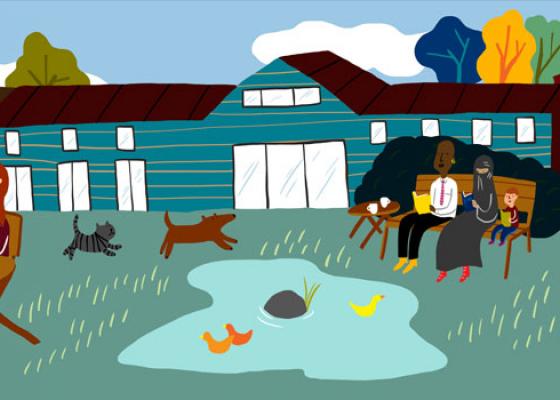The Malnutrition Task Force has developed an animation that explains how to use tools to help start conversations about eating well in later life, to help identify whether someone is at risk of undernutrition, and promote self-screening of older people in the community.
It brings together tools for use in the community by non-clinical staff, including volunteers and carers who work with older people, or by older people and their families. Watch our short animation about using the MTF tools to help start conversations.
The resource pack includes the following tools:
Watch our short animation about using the MTF tools to help start conversations.
- The Nutrition Wheel
A hard copy tool designed for use by volunteers, carers and care workers working with older people. The Nutrition Wheel cannot be downloaded, find out more information and how to order a copy here.
- The Patients Association Nutrition Checklist
The checklist helps patients and staff working in health and social care identify the potential risk of undernutrition in adults, and provides signposting to information and sources of help to those likely to be at risk. Find out more.
- BAPEN online self-screening tool
This tool is designed for people who are worried about their weight or the weight of somebody they care about to quickly and easily work out if there is a risk of malnutrition. Find out more.
- Eating Well in Later Life
We have produced the booklet, Eating Well in Later Life, to bring together helpful and practical tips on eating and keeping well as life changes. Download a copy.
All the tools can be downloaded or accessed online, apart from the Nutrition Wheel. To order hard copies of any of the tools, please contact us.
Who is it for?
This guide is for anyone who works or volunteers with older people in the community, be that in a community organisation or faith group, care home, domiciliary care, or a volunteer at a lunch club, coffee morning, befriending scheme and so on.
Why use this resource pack?
It is estimated that one in ten older people are at risk of or are undernourished, the majority of whom are living in the community. This means that they are not eating enough to maintain their health and wellbeing.
Signs of unintentional weight loss often go unnoticed until it has a big effect on a person’s health. The tools in this resource pack aim to help tackle the problem of undernutrition in the community by:
- Encouraging conversations about eating and drinking, to raise awareness of undernutrition in later life.
- To help identify those at risk using easy to use interactive tools.
- Provide basic advice about eating well in later life, and signposting to information and sources of help for those likely to be at risk.
The tools have been developed and tested for use in community settings.
When should these tools be used?
These tools have been developed for use in community settings, including in community organisations, care homes, and domiciliary care. You do not need training to use the tools but we have provided helpful information and guidance on how to use them.
Share your progress with us
If you have any questions or feedback about using the resource pack, the tools included in the pack, or to share how you are using it locally, please contact us.

